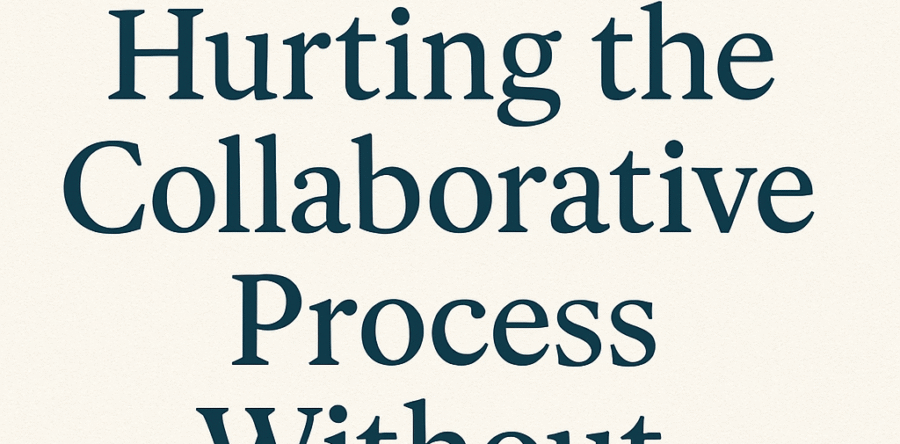Written by My Collaborative Team Marketing Director, Eric Sachs
The Collaborative Process is built on respect, teamwork, and a commitment to helping families resolve conflict outside of court. As trained Collaborative professionals, we’ve invested time and resources in learning how to guide clients through this more peaceful and constructive alternative. Here’s a question worth exploring: What happens when professionals who are trained in the Collaborative Process speak negatively about it, especially if they’ve never actually worked on a case?
This isn’t about blame, it’s about reflection.
It’s no secret that Collaborative training is powerful. It shifts the way we see conflict, communication, and resolution. However, training alone doesn’t give the full picture. The real transformation, the real understanding, often comes from participating in cases and seeing the process in action. Without that experience, is it possible that some professionals may unintentionally misrepresent the process?
Some common concerns we’ve heard:
- “Collaborative takes too long.”
- “It’s too expensive.”
- “It only works for people who already get along.”
These statements, while perhaps well-meaning, can undermine the public’s trust in the process, especially when they come from those who haven’t seen the Collaborative Process fully unfold with a trained team and clients committed to resolution.
So we ask:
- Is skepticism coming from a place of curiosity or assumption?
- Are these statements based on firsthand experience, or on a misunderstanding of how the Process truly works?
- Could these comments be unintentionally harming the growth and credibility of the Collaborative movement?
It’s worth considering the impact. When professionals with Collaborative training express doubt or criticism without direct experience, it may plant seeds of uncertainty among peers and potential clients. Could that be limiting opportunities for families to access a process that could truly serve them better?
Let’s not forget that part of our mission as Collaborative professionals is to advocate for a different way of resolving family disputes. If we’re unsure, let’s stay curious. If we’re skeptical, let’s engage with those who’ve been in the trenches. Let’s keep the conversation open, inquisitive, and rooted in shared goals.
After all, the Collaborative Process thrives when we work together, not just in cases, but in how we speak about the work we do.



